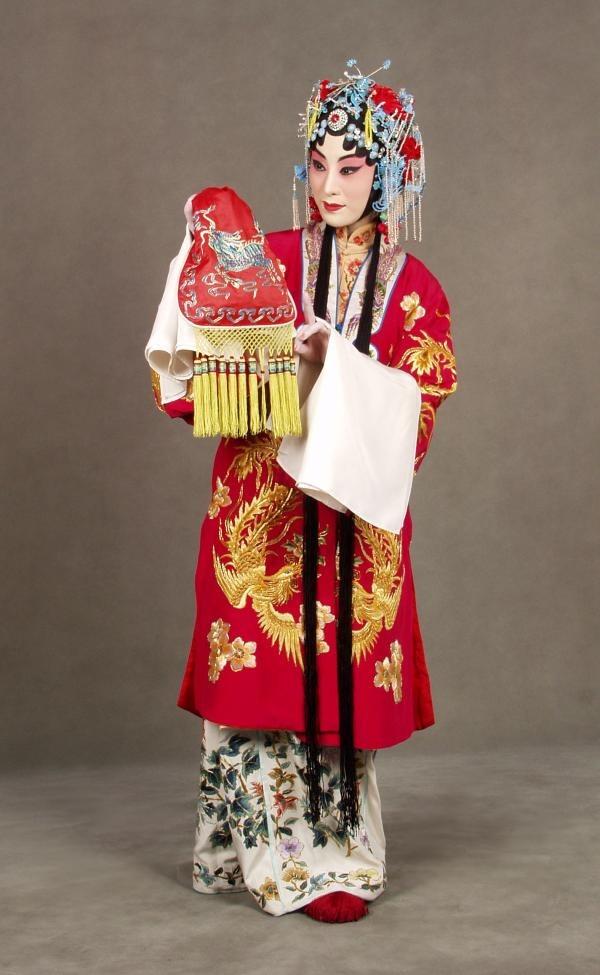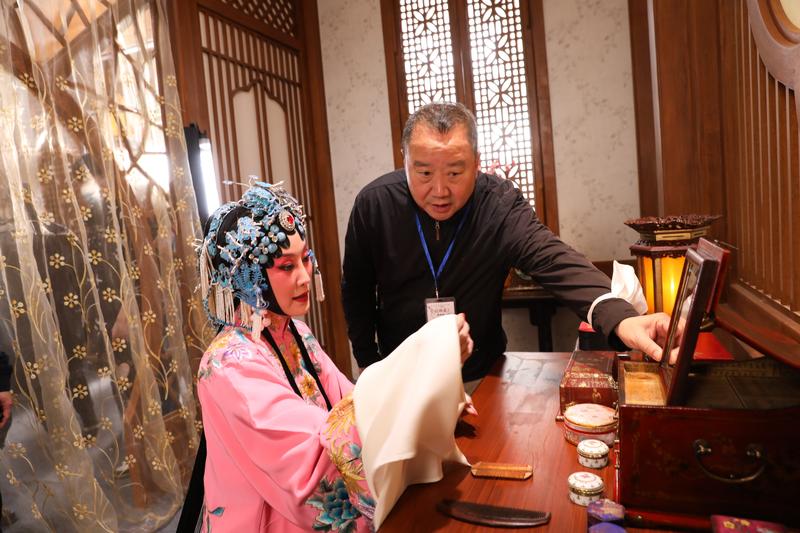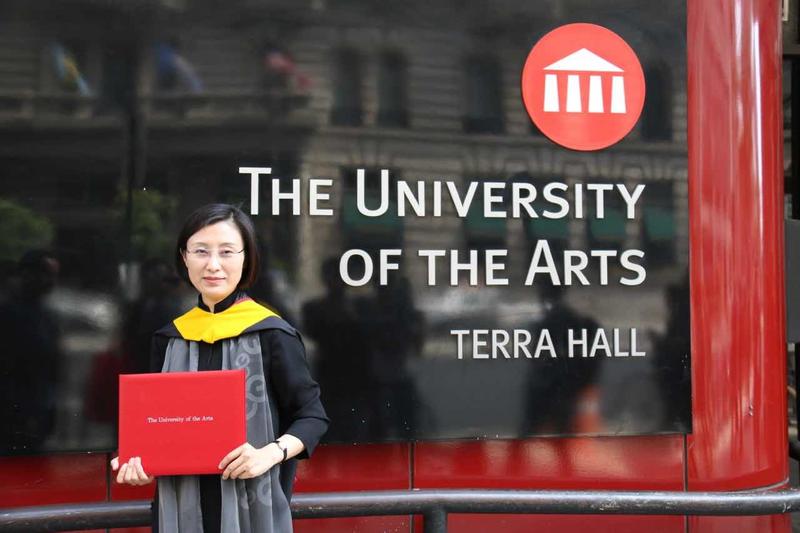Cinema audiences poised to watch The Jewelry Purse
 Zhang Huoding, one of China's most celebrated Peking Opera performers, plays the lead role of Xue Xiangling in the movie version of The Jewelry Purse. (YANG SHAODUO / FOR CHINA DAILY)
Zhang Huoding, one of China's most celebrated Peking Opera performers, plays the lead role of Xue Xiangling in the movie version of The Jewelry Purse. (YANG SHAODUO / FOR CHINA DAILY)
It has been more than 82 years since the classic Peking Opera The Jewelry Purse premiered.
Written by the celebrated playwright Weng Ouhong (1908-94), the work is one of the best-known performed by Cheng Yanqiu (1904-58), a master of the art form.
Audiences will soon be able to watch The Jewelry Purse in cinemas, as it has been made into a movie with the same title, which is expected to be screened next year.
Zhang Huoding, one of China's most celebrated modern-day Peking Opera actresses, plays the leading role of Xue Xiangling in the movie.
Also known as jingju, Peking Opera is a vivid, highly stylized form of the genre, combining acrobatics, martial arts, music, drama and dance. With a history of more than 200 years, it was inscribed on UNESCO's World Intangible Cultural Heritages List in 2010.
The art form is passed down from one generation to the next largely through master-student training, with trainees learning the basic skills through oral instruction, observation and imitation.
Zhang was trained by Peking Opera master Zhao Rongchen (1916-1996), and Zhao was trained by Cheng.
Cheng and three other Peking Opera masters, Mei Lanfang (1894-1961), Shang Xiaoyun (1900-1976) and Xun Huisheng (1900-1968), were hailed as the "Four Great Dan" when the art form had its heyday during the first half of the 20th century.
"Dan" refers to "nan dan" (a man playing a female role), a practice that emerged when women were forbidden to take to the stage. These masters established the four "dan" styles, which have been learned and carried forward by other artists over the years.
Cheng's performing style is known as the Cheng School, which counts Zhao and Zhang among its students.
Cheng was not only responsible for the singing style of The Jewelry Purse, but also played the leading role of Xue, a wealthy bride.
On the way to her wedding, Xue helps a poor woman, Zhao Shouzhen, by giving her an embroidered pouch containing some of Xue's precious jewels. Years later, when Xue — separated from her husband and child by a destructive flood — is penniless, hungry and grieving, she finds work as a maid, where she meets Zhao, who has become wealthy and receives Xue as an honored guest. Zhao takes care of Xue until Xue's family finds her, and the latter's original act of kindness is fully rewarded.
Yin Xiaodong, president of the National Academy of Chinese Theatre Arts, a leading institution for traditional Chinese opera and the main driving force behind the movie, said: "The Jewelry Purse is extremely well-known among Peking Opera fans. Like many such pieces, it tells a story that reflects traditional Chinese values, such as kindness and gratitude. It is a great way to promote and preserve the ancient art form by making it into a movie." Zhang has taught at the academy since 2008.
It took about eight years to complete shooting for the movie, which is now in post-production.
Yin said the project to turn The Jewelry Purse into a movie was launched in 2015, with collaboration among the National Academy of Chinese Theatre Arts, Shanghai Jingju Theatre Company, National Peking Opera Company and Shanghai Film Group. Experts and a number of Peking Opera artists worked together for years to prepare the movie.
Due to the COVID-19 pandemic, shooting plans for the film were frequently postponed.
 Zhang Huoding and director Teng Junjie on the set of The Jewelry Purse in January. (LIU HAIFA / FOR CHINA DAILY)
Zhang Huoding and director Teng Junjie on the set of The Jewelry Purse in January. (LIU HAIFA / FOR CHINA DAILY)
Crew excited
On Jan 4, the crew finally arrived at Xiangshan Film and Television City, Ningbo, Zhejiang province, and started shooting in two large studios, one covering about 3,500 square meters and the other 1,800 sq m. Both studios were built exclusively for the movie.
Teng Junjie, director of The Jewelry Purse, who was invited to join the project in 2018, said: "Last winter was cold and humid. All of us were very excited because we had prepared and waited for this moment for an extremely long time."
The Jewelry Purse is the sixth time that Teng has turned a classic Peking Opera work into a movie. His Farewell My Concubine: The Peking Opera, the first film in China to capture the art form by using 3D photography, won the Golden Lumiere Award in Los Angeles in 2015.
For The Jewelry Purse, Teng combined the latest film technology — 8K display resolution — with a Dolby Atmos soundtrack, giving audiences an immersive visual and audio experience of Peking Opera.
"We look to movie technologies to capture and amplify the beauty of Peking Opera. For example, we use closeups when a performer has an extremely intense, emotional moment in a particular scene. Unlike an audience member in a limited seating position in a theater, we ensure the viewer always has the best-seat experience when watching a movie," Teng said.
Before shooting started, Teng watched Zhang perform in theaters, and said he was impressed by the enthusiastic fans who came to see her.
Zhang's deep, expressive singing style and her graceful portrayals of the art form explain why she enchants audiences, Teng said.
Performing onstage and acting in front of the camera are totally different experiences for Peking Opera performers, the director added.
In theaters, the performers complete a show from beginning to end, and it is a "final" product and a one-off experience. But in shooting a movie, they have to adjust themselves to work with the camera. They also have to cope with retakes to get the perfect shot.
Li Huayi, who has taught at the National Academy of Chinese Theatre Arts since she graduated from the institution with a major in movie and television directing in 2010, said, "It was a big challenge for Zhang, but thanks to her previous experience of working with filmmakers, she did a great job."
In 2007, Zhang played the leading role of Bai Suzhen in the movie The Legend of the White Snake, adapted from the classic Peking Opera piece with the same title. Five years earlier, she played the main role in the movie Jiang Jie, which is based on the contemporary eponymous Peking Opera that features the story of the female martyr Jiang Zhuyun.
Li said The Jewelry Purse was Zhang's third Peking Opera movie.
In 2016, the National Academy of Chinese Theatre Arts launched the Zhang Huoding Peking Opera Cheng School Art Inheritance Center, with Zhang mentoring young female students performing in the style of the Cheng School.
Li, who has worked with Zhang as a member of the center, traveled with her to Xiangshan Film and Television City in January to go through the entire shooting process.
"It took 19 days to finish the shooting, and the team worked for eight to 10 hours each day," Li said.
Traditionally, stage settings and props for Peking Opera shows are kept to a minimum. However, the makeup is often exaggerated and the costumes are flamboyant, as both are considered to symbolize the characters' personalities and social identities.
Zhang, 51, rose early to begin applying makeup and putting on costumes, which usually took three to four hours.
Dressing for the role required her to tie a piece of cloth around her head before putting on exquisite headwear. She had to tie the cloth tight enough to ensure the headwear stayed in place throughout the performance.
Li said: "When people go to watch a Peking Opera show, they never leave disappointed. However, working behind the scenes is a different story. When Zhang performs in theaters, it takes her four to five hours to put on the full makeup and costumes. But during shooting for the movie, she had to wear full makeup and costumes for about 12 hours a day, which was very challenging, and even painful."
One of the most memorable days during shooting was when Zhang performed her signature water sleeves dance, Li said. Water sleeves are the long, white silk sleeves attached to the cuffs of female characters' costumes in Peking Opera.
Whenever Zhang performs this dance in theaters, audiences react with bursts of applause.
A day before shooting the water sleeves scene, Zhang arrived on the set and practiced for three hours, as she wanted to find the right position and perform the dance moves in front of the camera to get the perfect shot," Li said. "The next day, she did 17 takes to get the ideal shot. After she finished the takes, the shirt next to her skin was soaked in sweat."
Teng said: "Beauty and difficulty are two sides of the same coin in Peking Opera. As an artist, Zhang is a perfectionist. She is fully committed to the art form and cares about all the details of her performances. I once asked her why she was so attentive to detail, and she told me she didn't want to fail the expectations of her teacher, Zhao Rongchen."
Zhang always wears her hair short and neat. She keeps a low profile, rarely giving interviews. With traditional genres such as Peking Opera facing challenges from contemporary forms of entertainment, she is dedicated to preserving the old art form and is doing her best to tell more people about the genre.
Born in Baicheng, Jilin province, Zhang was introduced to traditional Chinese opera by her father, who performed Pingju Opera, a traditional art form popular in northern China.
Her elder brother, Zhang Huoqian, who began studying Peking Opera as a child, was trained to play qingyi — graceful female roles.
 Zhang Huoding is awarded an honorary professorship at the University of the Arts in Philadelphia, United States, in 2015. (LI LINXIAO / FOR CHINA DAILY)
Zhang Huoding is awarded an honorary professorship at the University of the Arts in Philadelphia, United States, in 2015. (LI LINXIAO / FOR CHINA DAILY)
New experience
In 1989, after leaving school in Tianjin, Zhang joined a Peking Opera troupe in Beijing, and from 1995 to 2008 she performed with the National Peking Opera Company.
Zhang Yao, director of the Zhang Huoding Peking Opera Cheng School Art Inheritance Center and vice-president of the National Academy of Chinese Theatre Arts, said, "For audiences who have watched Zhang, the movie offers them a fresh experience to better enjoy her performance with the support of cinematography.
"For people who might never go to a Peking Opera show, the movie gives them a glimpse of the old art form and Zhang Huoding. They will be interested and will come to watch Peking Opera shows in theaters."
In 2015, Zhang Huoding made her debut in the United States in performances of The Legend of the White Snake and The Jewelry Purse at the Lincoln Center for the Performing Arts in New York.
Media reports compared her performances with those of the Peking Opera artist Mei Lanfang in New York in 1930. Then, as now, there was a sense that traditional Chinese opera could be popular overseas and even influence the global arts scene.
Zhang Yao, 54, who is also a veteran Peking Opera actor, substituted at the last minute in New York for an actor who couldn't appear in the shows due to visa problems. Zhang Yao performed with Zhang Huoding in these performances.
"Before the shows, we gave audiences a taste of the origins and development of Peking Opera. We pointed out the highlights of each performance with the help of Chinese- and English-speaking Peking Opera specialists. All the shows sold out and audiences responded warmly to the performances," Zhang Yao said.
Zhang Huoding's performances sell out fast and she usually returns to the stage after each show to extend her gratitude to the audience by taking at least five curtain calls.
"She is a star. The movie will introduce her art to a wider audience," Zhang Yao said.


